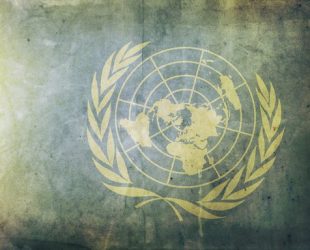Key Issue:UN BDS Blacklist
After multiple delays over legal, due process, and methodological concerns, which do not seem to have been addressed, on February 12, 2020, the UN Office of the High Commissioner for Human Rights (OHCHR) published its “Database of all business enterprises” that it claims contribute to “human rights concerns.” This UN blacklist, ordered by the UN Human Rights Council (HRC), is meant to bolster BDS (boycott, divestment, and sanctions) campaigns, singling out Israel. The unique treatment of Israel in this exercise, as with many other HRC initiatives, violates the International Holocaust Remembrance Alliance (IHRA) Definition of antisemitism.
What is the Blacklist?
On March 24, 2016, the Human Rights Council (UNHRC) established Resolution 31/36, “Israeli settlements in the Occupied Palestinian Territory, including East Jerusalem, and in the occupied Syrian Golan.” The Resolution called on the Office of the High Commissioner for Human Rights (OHCHR) in consultation with the UN’s Working Group on Business and Human Rights to create a discriminatory blacklist of entities allegedly conducting activities in areas over the 1949 Armistice line. The database is aimed at economically damaging companies that are owned by Jews or do business with Israel, and is ultimately meant to harm the Jewish state.
This blacklist, aimed at advancing discriminatory anti-Israel BDS (boycott, divestment and sanctions), operates from the false premises that business in occupied territory is “illegal settlement activity” and is barred by international law. In fact, there is no such prohibition and almost every country engages in and/or facilitates business activities in settlements in situations of occupation throughout the globe.
The discriminatory blacklist also targets companies providing security services to the State of Israel, by labeling legitimate security measures as “illegal settlement activity.” The purpose is to disrupt efforts to protect civilians from Palestinian terrorism and is part of a decades-long UN campaign to minimize and justify Palestinian violence.
Another major category of listed companies are those providing consumer goods and services (food, telecommunications, pharmaceuticals, gas, water) to both Palestinians and Israelis. The UN seeks to bar such companies from operating or impose discriminatory business criteria with little regard as to the human rights and economic impacts on the local population.
The UN BDS Blacklist also targets companies that facilitate the promotion of Jewish and Christian heritage and tourism in Jerusalem and the West Bank. In other words, the BDS Blacklist seeks to erase Jewish and Christian history from the Holy Land and is therefore antisemitic in both intent and effect. Despite efforts to prevent its publication and multiple delays, the list will apparently be published in March 2019 at the 40th Session of the UN Human Rights Council.






